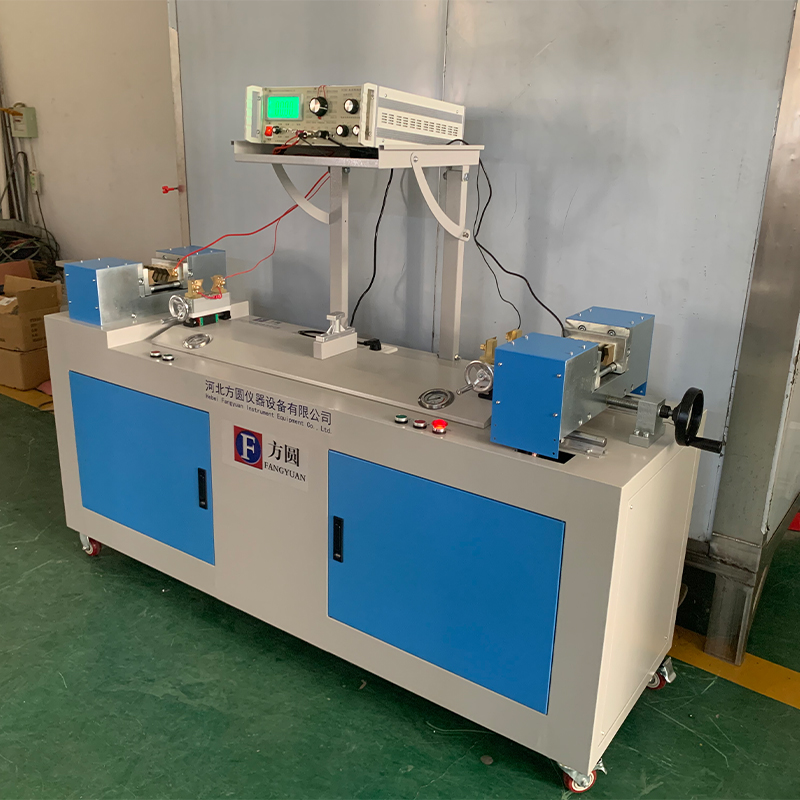Manufacturers of Grips for Tensile Testing Machines and Equipment
Understanding Tensile Tester Grips The Key to Accurate Material Testing
Tensile testing is a fundamental method used to evaluate the mechanical properties of materials, determining how they respond under tension. Whether it’s metals, plastics, or textiles, the integrity and reliability of tensile testing are heavily dependent on the quality of the grips used in the testing apparatus. This article explores the role and significance of tensile tester grips, discussing the types of grips, their manufacturers, and the best practices for selecting the right grip for your testing needs.
What are Tensile Tester Grips?
Tensile tester grips are specialized devices that hold the specimen in place during a tensile test. They are designed to apply a controlled pulling force to the material, measuring its response to stress and strain until failure. The grips must ensure that the specimen is secured without introducing any slippage or additional stress concentrations that could affect the test results.
Types of Tensile Tester Grips
There are various types of tensile tester grips, each suited for different materials and applications. The most common types include
1. Mechanical Grips These grips use a clamping mechanism, often with rubber jaws, to hold the specimen in place. They are typically utilized for softer materials, such as plastics and textiles.
2. Hydraulic Grips Applied in tougher testing environments, hydraulic grips use hydraulic pressure to secure the specimen. These grips offer the advantage of uniform pressure distribution and are suitable for high-strength materials like metals.
3. Pneumatic Grips Similar to hydraulic grips, pneumatic grips utilize compressed air to maintain the specimen securely. They can be adjusted to accommodate different sizes and are often used in automated testing environments.
4. Wedge Grips These grips utilize a wedge mechanism that tightens around the specimen as force is applied. They are particularly effective for high elongation materials and can minimize the risk of slip.
5. Custom Grips For specialized applications, some manufacturers offer custom-designed grips tailored to specific materials or testing requirements.
Choosing the Right Grip Manufacturer
Selecting a reputable tensile tester grips manufacturer is crucial to ensure the accuracy and reliability of your tests. Here are some key factors to consider
tensile tester grips manufacturer

1. Quality and Reliability Look for manufacturers known for their high-quality materials and precise engineering. The durability of grips greatly impacts their performance over time.
2. Compatibility Ensure that the grips are compatible with your specific tensile testing machine. It’s essential for maintaining standardized testing procedures.
3. Customization Options If you work with diverse materials, consider a manufacturer that offers customizable grip solutions tailored to your exact needs.
4. Support and Service A reliable manufacturer should offer technical support and service to help you maintain the grips and troubleshoot any issues that may arise.
5. Cost-Effectiveness While it might be tempting to choose the cheapest option, consider the overall cost-effectiveness, including durability and performance, to get the best value for your investment.
Best Practices for Using Tensile Tester Grips
To maximize the efficiency and accuracy of tensile testing, follow these best practices
- Regular Calibration Ensure that your grips are regularly calibrated and maintained for optimal performance.
- Proper Alignment Always align the specimen correctly within the grips to avoid introducing any unwanted forces.
- Inspect for Wear Frequently check the grips for any signs of wear or damage, as these can lead to inaccurate results.
- Use Appropriate Grips Match the material and expected force with the right type of grip to prevent slippage or failure.
Conclusion
Tensile tester grips are critical components in the material testing process, influencing the accuracy and reliability of the results. By understanding the different types of grips and choosing a trustworthy manufacturer, along with following best practices, you can enhance your material testing capabilities. Whether you're involved in research, quality control, or product development, investing in high-quality tensile tester grips is a step towards achieving precise and dependable testing outcomes.
-
The Role of Tensile Force Testers in Quality Control and Material Science
NewsAug.01,2025
-
Maintenance and Safety Tips for Aging Ovens
NewsAug.01,2025
-
Density Balance in Forensic Science
NewsAug.01,2025
-
Advanced Optical Measurement Technologies
NewsAug.01,2025
-
A Buyer’s Guide to Tensile Test Machines
NewsAug.01,2025
-
Why the Conductor Resistance Constant Temperature Measurement Machine Redefines Precision
NewsJun.20,2025
 Copyright © 2025 Hebei Fangyuan Instrument & Equipment Co.,Ltd. All Rights Reserved. Sitemap | Privacy Policy
Copyright © 2025 Hebei Fangyuan Instrument & Equipment Co.,Ltd. All Rights Reserved. Sitemap | Privacy Policy
